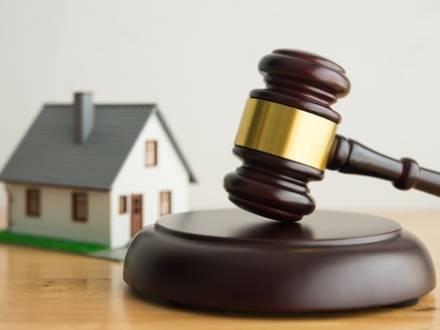1512 Artaius Parkway, Suite 300,
Libertyville, IL 60048
Call for a FREE Phone Consultation
847-549-0000
Video Consultations Also Available
 Spanish
Spanish Cantonese
CantoneseServing Clients Across 7 Illinois Locations
Illinois Foreclosure Proceedings – When Must the Homeowner Move Out?
 One of the most stressful questions homeowners ask during foreclosure is when they actually have to leave their home. In Illinois, homeowners usually do not have to move out until the foreclosure case is finished and the court issues an order for possession. This process often takes months, and sometimes longer, depending on what happens in court.
One of the most stressful questions homeowners ask during foreclosure is when they actually have to leave their home. In Illinois, homeowners usually do not have to move out until the foreclosure case is finished and the court issues an order for possession. This process often takes months, and sometimes longer, depending on what happens in court.
Foreclosure remains a serious issue across the state. In a 2025 report from ATTOM Data Solutions, Illinois continued to see thousands of foreclosure filings, showing that many families are still navigating this process.
As of 2026, Illinois foreclosure cases are still handled through the court system, which means homeowners are given notice, time, and specific legal protections before they must move out. If you are facing foreclosure, our Waukegan, IL foreclosure defense lawyers can help you understand what happens next.
Does Foreclosure Mean You Have To Move Out Right Away in Illinois?
Foreclosure does not mean you must move out as soon as the case is filed. Illinois is a judicial foreclosure state, which means the lender must go through the court system before taking possession of the property.
Homeowners usually remain in the home during the foreclosure case. This includes the time while the lawsuit is pending and, in many cases, even after a foreclosure judgment is entered.
How Does the Illinois Foreclosure Process Work?
Illinois foreclosure follows a set legal process. The lender must file a lawsuit and prove its right to foreclose. The homeowner has the opportunity to respond and raise defenses.
Key stages of the process often include:
-
The lender files a foreclosure complaint in court.
-
The homeowner is served with legal papers and given time to respond.
-
The court reviews the case and may enter a foreclosure judgment.
-
A foreclosure sale is scheduled if the case is not resolved.
-
The court later issues an order for possession.
Each step takes time, which means moving out is not immediate.
When Does the Homeowner Have To Move Out After Foreclosure in Illinois?
In most cases, a homeowner must move out after the foreclosure sale and after the court enters an order granting possession to the new owner. This does not happen automatically.
Under 735 ILCS 5/15-1701, the court controls who has possession of the property during and after foreclosure. Many homeowners are allowed to stay in the home until the court orders otherwise.
What Is the Redemption Period in an Illinois Foreclosure?
Illinois law provides a redemption period during foreclosure. This is a set amount of time during which the homeowner can stop the foreclosure by paying what is owed.
Under 735 ILCS 5/15-1603, the redemption period usually lasts several months and may extend past the foreclosure judgment. During this time, the homeowner typically remains in the property.
Can a Homeowner Be Evicted After a Foreclosure Sale in Illinois?
A homeowner can be evicted after a foreclosure, but only after proper legal steps are taken. If the property is sold at a foreclosure sale, the new owner must still obtain an order for possession from the court.
Eviction does not happen the day of the sale. The sheriff enforces the court’s order, and the homeowner is usually given notice before any move-out date is set.
What If a Foreclosure Involves a Rental Property in Illinois?
If the home is rented, different rules may apply during foreclosure. Tenants may have rights under state or federal law that allow them to stay for a period of time, even after foreclosure.
These situations depend on the lease, the type of foreclosure, and who buys the property. Legal guidance is often important in these cases.
What Should Illinois Homeowners Do if Foreclosure Is Filed?
Foreclosure cases move on a court schedule, but homeowners still have options. Early action can sometimes delay the process or lead to alternatives like loan modification, repayment plans, or case dismissal.
Understanding deadlines and court notices is critical. Missing a response deadline can speed up foreclosure and reduce options.
Schedule a Free Consultation With Our Gurnee, IL Foreclosure Defense Attorneys
If you are facing foreclosure and are worried about when you may have to move out, we can help you understand your rights and timing under Illinois law. At Newland & Newland, LLP, our attorneys are local to Illinois and put their clients and communities first. With many decades of combined experience across our legal team, we focus on guiding homeowners through foreclosure with clear, practical advice.
Call 847-549-0000 to schedule a free consultation with our Waukegan, IL foreclosure defense lawyers and learn what options may still be available in your situation. We offer services in Spanish and Cantonese.
 Stop Foreclosure
Stop Foreclosure




















